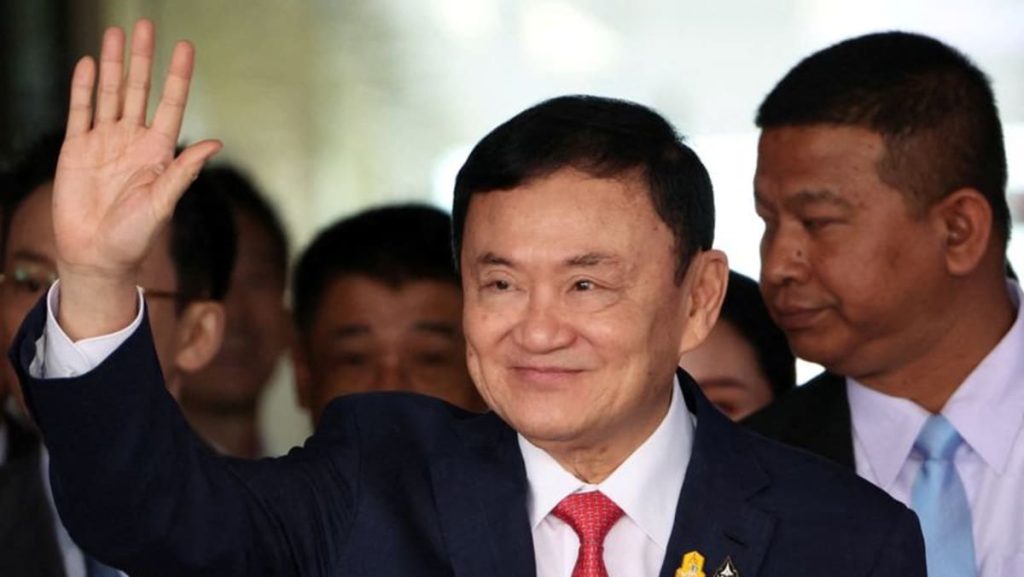Thaksin Shinawatra’s recent appointment as an informal advisor to the Malaysian government, spearheaded by Prime Minister Anwar Ibrahim, has sparked considerable discussion and speculation. While some view the move as unprecedented within the ASEAN context, the practice of assembling seasoned individuals outside formal governmental structures for advice and insights is a globally recognized strategy. These informal advisory bodies, often referred to as “councils of elders,” provide access to a wealth of experience and a network of connections that can transcend bureaucratic hurdles, offering a unique perspective and facilitating communication channels beyond the reach of traditional diplomatic avenues. In Thaksin’s case, his deep-rooted regional connections, particularly within Myanmar, Cambodia, and other ASEAN nations, present a valuable asset for Malaysia in navigating complex regional dynamics and advancing its strategic interests.
Thaksin’s value lies primarily in his extensive network of personal relationships cultivated over decades of political and business involvement in Southeast Asia. His familiarity with the Myanmar junta, including key figures within the regime, positions him as a potential bridge in addressing the ongoing political crisis in the country. Myanmar’s protracted internal conflict, coupled with its strategic geopolitical location, presents a significant challenge for ASEAN. Thaksin’s ability to engage with the junta, fostered through years of interaction, offers a unique channel for communication and potential influence that could contribute to finding a resolution to the crisis. This direct line of communication is crucial, bypassing the often cumbersome and ineffective formal diplomatic processes that have thus far yielded limited progress.
Furthermore, Thaksin’s connections extend beyond Myanmar, encompassing other influential figures within the ASEAN bloc. He has maintained close ties with Cambodia’s former leader Hun Sen, a significant player in regional politics, and enjoys connections in Singapore and Brunei, key economic and political hubs in Southeast Asia. These relationships, built on personal trust and understanding, provide valuable backchannels for communication and negotiation, often proving more effective than official diplomatic channels in addressing sensitive issues and fostering regional cooperation. His understanding of the political landscape and personal rapport with these leaders can facilitate smoother diplomatic interactions and potentially accelerate progress on various bilateral and multilateral initiatives.
One area where Thaksin’s influence could prove particularly beneficial is in advancing Malaysia’s “Six Countries, One Destination” tourism initiative. This ambitious project, modeled after Europe’s Schengen visa system, aims to streamline travel within the region by allowing tourists to visit Malaysia, Thailand, Cambodia, Vietnam, Laos, and Brunei with a single visa. The complexities of implementing such a system require significant cross-border coordination and political buy-in from all participating nations. Thaksin’s established relationships with key figures within these countries could expedite the process by facilitating discussions, addressing concerns, and fostering consensus among the involved parties.
Beyond tourism, Thaksin’s expertise and regional influence could play a crucial role in addressing critical border issues that affect both Malaysia and its neighbors. Smuggling of humans and narcotics, along with the development of robust road, rail, and customs infrastructure, are key areas where his involvement could make a tangible difference. His understanding of the intricacies of these issues, coupled with his ability to engage with relevant authorities in neighboring countries, could pave the way for more effective cross-border collaboration in combating criminal activities and promoting economic integration.
For instance, Malaysia is keen on progressing with the construction of a bridge connecting Sungai Kolok district in Narathiwat to Kelantan’s Rantau Panjang within the next three years. Such infrastructure projects require intricate coordination and negotiation between neighboring countries, involving land acquisition, regulatory approvals, and funding mechanisms. Thaksin’s experience and connections could prove instrumental in smoothing the path for this project, facilitating dialogue between Malaysian authorities and their Thai counterparts, and potentially attracting investment to expedite its completion. His ability to navigate the complex web of bureaucratic processes and political sensitivities could significantly accelerate the realization of this crucial infrastructure project.
In conclusion, Thaksin Shinawatra’s appointment as an informal advisor, while unconventional, presents a strategic opportunity for Malaysia to leverage his extensive regional network and experience. His deep-rooted connections within Myanmar, Cambodia, and other ASEAN nations provide Malaysia with a valuable backchannel for communication and negotiation, enabling more effective engagement on sensitive issues ranging from political crises to economic cooperation. His ability to navigate complex regional dynamics, coupled with his understanding of the political landscape and personal rapport with key figures, positions him as a valuable asset in advancing Malaysia’s interests within the ASEAN bloc. While his appointment may have raised eyebrows, Thaksin’s potential contribution to resolving regional challenges and fostering stronger cross-border ties should not be underestimated. His informal role allows for a flexibility and directness that traditional diplomatic channels often lack, making him a potentially potent force in shaping the future of regional dynamics.

